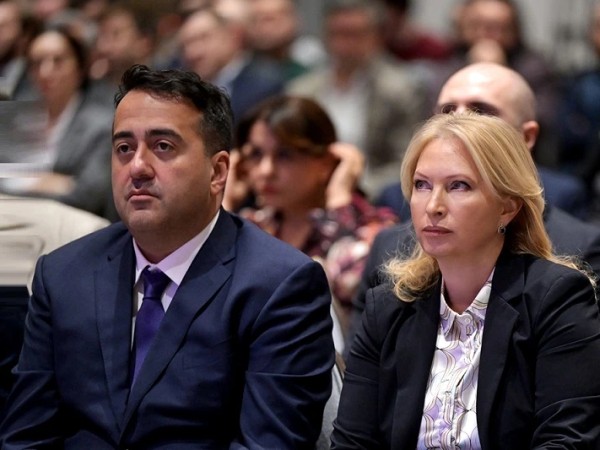Tbilisi (GBC) - In order to mitigate the impact of globally tightened financial conditions on the local economy, according to the committee's decision, the countercyclical buffer will be accumulated gradually, and the upper limit of the minimum foreign currency reserve requirement norm will be reduced.
As of the decision of the Financial Stability Committee, banks are required to accumulate a neutral countercyclical buffer according to the following schedule: by March 15, 2024 - 0.25 percent, by March 15, 2025 - 0.5 percent, by March 15, 2026 - 0.75 percent, by March 15, 2027 - 1 percent. Additionally, the Monetary Policy Committee reduced the upper limit of the reserve norm on short-term foreign currency liabilities from 25 percent to 20 percent. This change will provide the local market with additional liquidity in foreign currency and more flexibility for buffer accumulation, which will somewhat mitigate the impact of global tightening financial conditions on the financial sector, and as a result, improve access to finance.
The financial system of Georgia maintains stability and continues to provide loans to the economy without interruption. As of October 2023, banks have healthy capital and liquidity ratios. Compared to last year, the quality of assets has also improved. In October 2023, the annual growth of loans, excluding the effect of the exchange rate, amounted to 16.2%, which is largely due to the growth of business loans. According to the data of the third quarter of 2023, the ratio of loans to the gross domestic product continues to lag behind the long-term trend, however, compared to the beginning of the year, the negative gap of the ratio of loans to GDP is relatively reduced, which is a reflection of the normalization of high economic growth and sustainable credit activity. According to the committee's assessment, if the current trend of credit activity and economic growth is maintained, it is expected that the ratio of loans to GDP will approach its long-term trend in 2024. Therefore, at the current stage, there is no need to change the cyclical component of the capital countercyclical buffer.
In order to reduce the structural risks caused by the high level of dollarization, the National Bank, in cooperation with the banking sector, continues to actively work on a long-term plan. The high level of dollarization and related risks remain an important challenge for the Georgian financial sector. In order to mitigate the risks, the NBG takes planned steps. The limit on unhedged foreign currency loan was increased to 300,000 GEL at the last committee. In order for the reduction of structural risks to continue irreversibly in the future, the NBG, in agreement with the banks, will gradually increase the limit taking into account the current macroeconomic environment and risks.




















